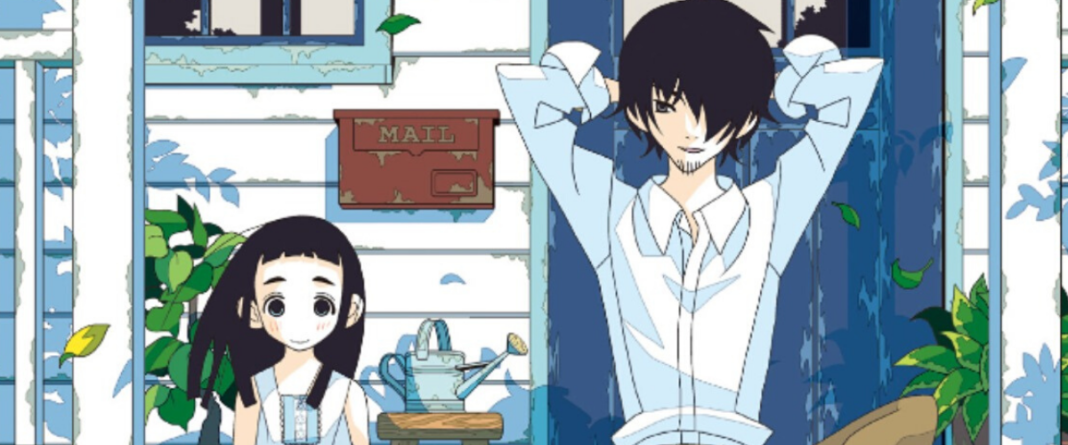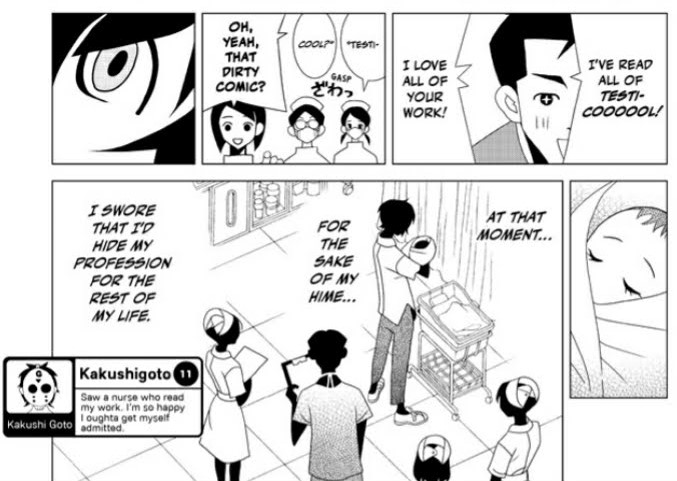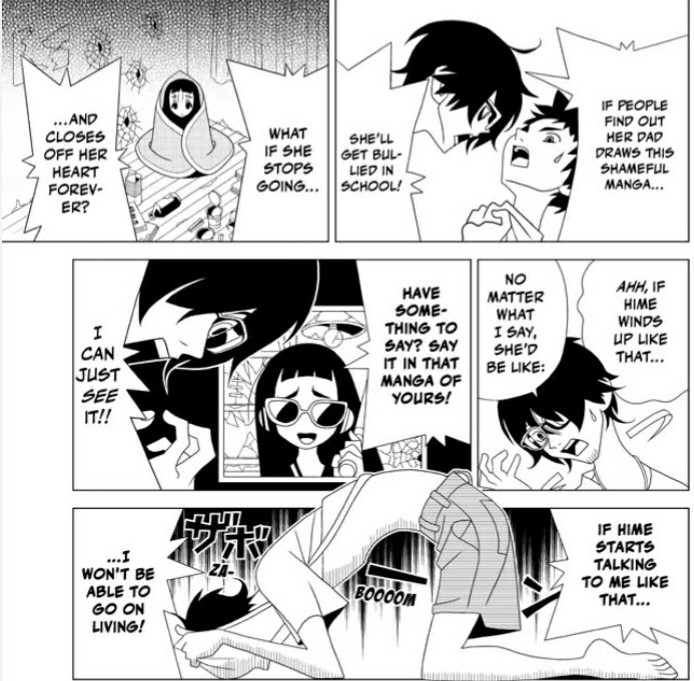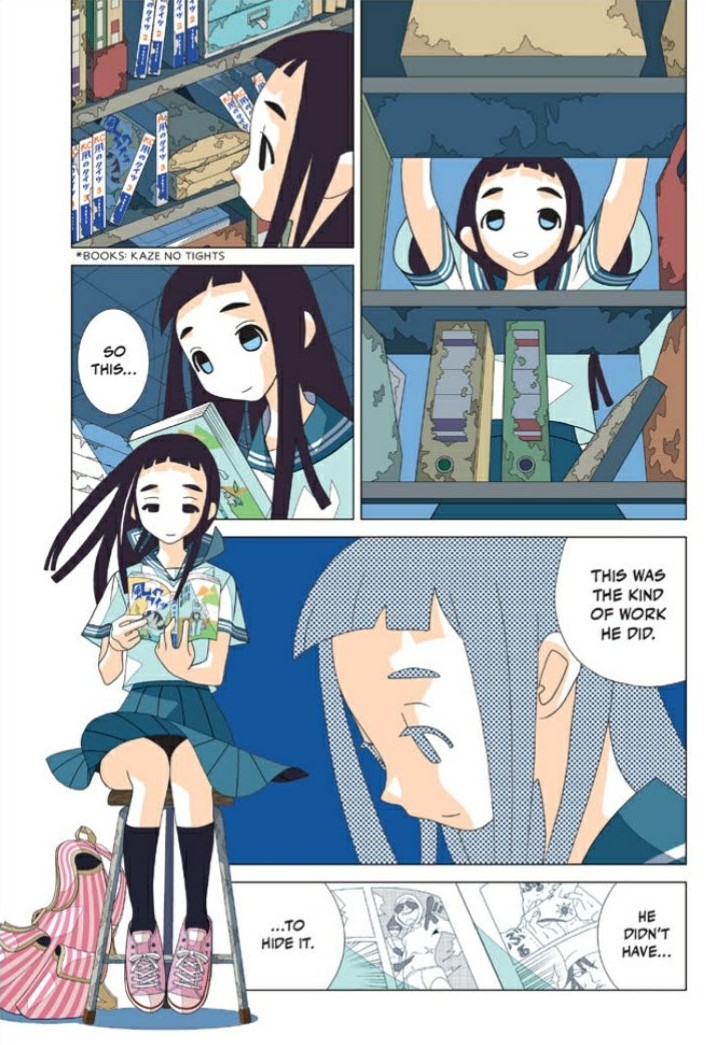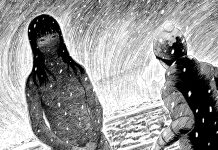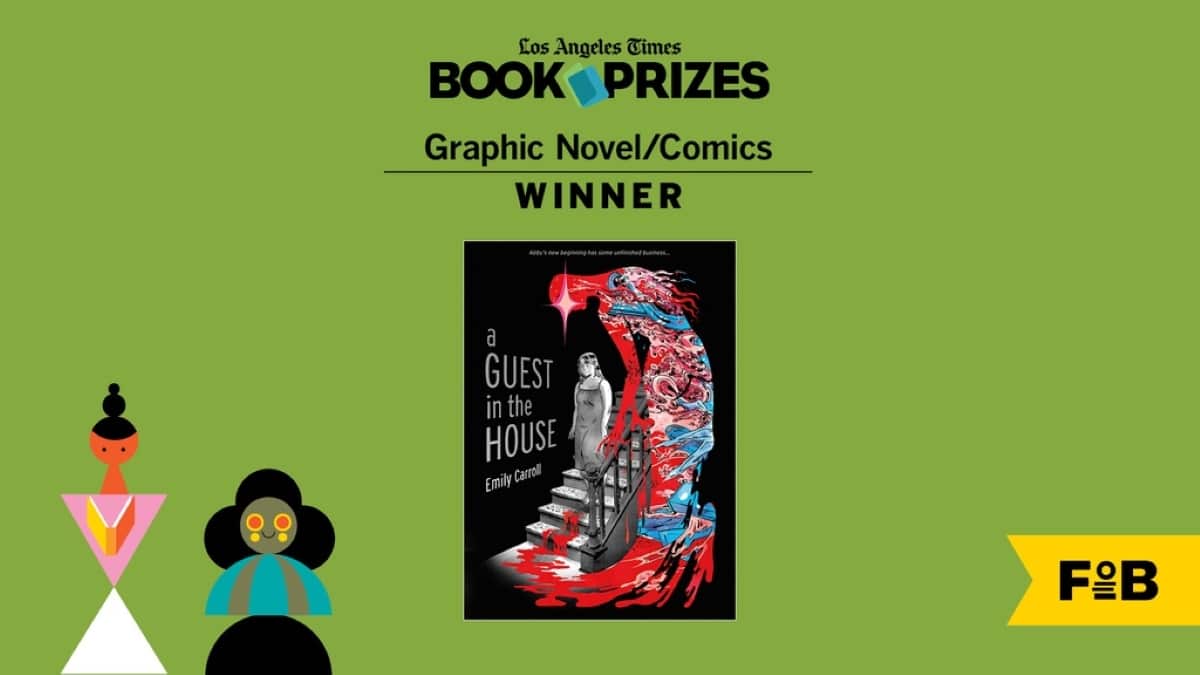 Kakushigoto: My Dad’s Secret Ambition
Kakushigoto: My Dad’s Secret Ambition
Story & Art: Kouji Kumeta
Translation: Kevin Gifford
Lettering: Kyle Ziolko
Editing: Stephen LeCroy
It is universally understood that loving parents will go to great lengths for their children, though those lengths might look different depending on cultural background, parenting style, and personal history. In the case of Kakushi Goto and his daughter Hime, Kakushi’s hangup is hiding his real job — that of a “dirty” manga creator — from his innocent little girl. His determination began in the hospital on the day of Hime’s birth, when doctors and nurses recognized his name and praised him for his series, Testi-coooool, which they all admitted to reading and enjoying. He is self-conscious about his ludicrous, pervy gag manga, but he cannot stop making it because he needs to support Hime all on his own.
In his myopic pursuit of keeping Hime in the dark, Kakushi has trained all his assistants in emergency protocol should the elementary school girl arrive unannounced — however unlikely that may be, seeing as he purposefully keeps his studio on the other side of town from their home. Upon learning that Hime’s wish for her father is to “get big,” her childlike reasoning being that that’s what dads want, Kakushi suddenly wants to write a dark fantasy manga, thinking that’s the key to making her proud. Unfortunately, he is only suited to the dirty work he already does, and so the cycle of self-loathing, secrecy, and silliness continues.
The manga’s premise seems dubious at first, especially for those who remember otherwise sweet father-daughter stories like Yumi Unita’s Bunny Drop which resulted in the main characters developing romantic feelings for each other. However, even though Kakushi makes his living off of penning raucous sex gags every week, he is not a particularly sexual character. In fact, many of the women he comes across in his day to day life, including Hime’s schoolteacher, are attracted to him, but he doesn’t seem to notice. His sole desire is to provide for his daughter and never, ever let her find out about his “indecent” job, lest she become embarrassed or ashamed of him.
Of course, Kakushi’s fears are misguided. His work is not titillating pornography, but stupid, raunchy jokes that appeal to a broad audience. He constantly encounters people who praise him — again, including Hime’s schoolteacher! But he can’t seem to see that Hime would be proud of him no matter what he does for work, can’t seem to get over his insecurity about being a shameful father. And that trait, though blown out of proportion for the sake of comedy, renders him an endearing protagonist. Without Kakushi and Hime’s mutual affection, Kakushigoto: My Dad’s Secret Ambition could very well be a forgettable gag manga itself, enjoyable while reading but mostly inconsequential. Instead, it exaggerates the very real concerns that many parents have, that their children may grow to think poorly of them, touching on that universal truth mentioned earlier.
Author Kouiji Kumeta likes to poke fun at the manga industry and other manga creators, a feature which may act as a drawback to more casual manga readers. References to Eiichiro Oda’s One Piece won’t go amiss, but Kumeta actually makes a recurring character out of manga creator Kazuhiro Fujita, whose only English-language work available right now is the two-volume series The Black Museum: The Ghost and the Lady. Still, the inside baseball is fun for those who are deep into manga, and not so central to the story that it cannot be enjoyed otherwise.
Kumeta’s artwork is cute and simple, favoring bold lines and solid blacks, though there are a handful of bright color pages at the opening and end which take place when Hime is older. Kumeta likes to break panel borders with figures often, giving pages a more dynamic feeling. North American readers might recognize his work from Sayonara, Zetsubou-Sensei, a comedy which satirizes politics and media rather than parenthood and manga. Kumeta has a definite aptitude for the absurd, and readers are given the sense that perhaps Kakushi is a thinly-veiled avatar for the author himself, though that is frankly denied in the text.
The first volume of the series is available digitally through Kodansha Comics with second and third volumes soon to follow. Those who crave more of that feel-good family stuff can check out a new anime adaptation, simulcasting on Funimation’s website.


